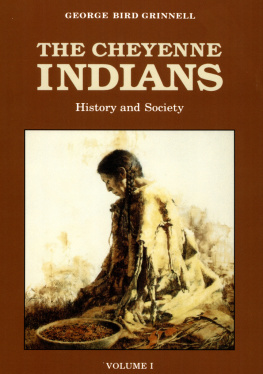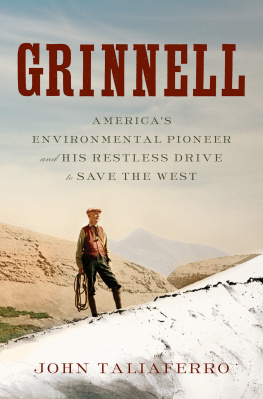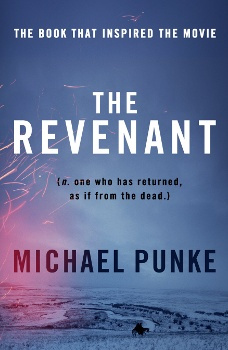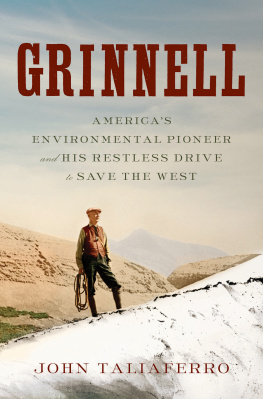Grinnell, 1849-1938 - When buffalo ran
Here you can read online Grinnell, 1849-1938 - When buffalo ran full text of the book (entire story) in english for free. Download pdf and epub, get meaning, cover and reviews about this ebook. genre: History. Description of the work, (preface) as well as reviews are available. Best literature library LitArk.com created for fans of good reading and offers a wide selection of genres:
Romance novel
Science fiction
Adventure
Detective
Science
History
Home and family
Prose
Art
Politics
Computer
Non-fiction
Religion
Business
Children
Humor
Choose a favorite category and find really read worthwhile books. Enjoy immersion in the world of imagination, feel the emotions of the characters or learn something new for yourself, make an fascinating discovery.

When buffalo ran: summary, description and annotation
We offer to read an annotation, description, summary or preface (depends on what the author of the book "When buffalo ran" wrote himself). If you haven't found the necessary information about the book — write in the comments, we will try to find it.
Grinnell, 1849-1938: author's other books
Who wrote When buffalo ran? Find out the surname, the name of the author of the book and a list of all author's works by series.
When buffalo ran — read online for free the complete book (whole text) full work
Below is the text of the book, divided by pages. System saving the place of the last page read, allows you to conveniently read the book "When buffalo ran" online for free, without having to search again every time where you left off. Put a bookmark, and you can go to the page where you finished reading at any time.
Font size:
Interval:
Bookmark:




n.i\.m. s ^^^
IV
m

Copyright, 1920, hy Yale University Press.
First publishsd, 19fS0.
People Looking from the Lodges . . . Frontispiece
Ftuiing pctge
Hunting in the Brush along the River ... 16
My Grandmother Lived in Our Lodge ... 20 My Grandfather . . . Long before Had Given
up the Warpath 28
I Killed Many Bufalo and My Mother Dressed
the Hides 48
Holding the Pipe to the Sky and to the Earth . 56
"Do Not Go, Wait a Little Longer'' .... 80
Watch the Men and Older Boys Playing at Sticks 104
The Plains Country.
Seventy years ago, when some of the events here recounted took place, Indians were Indians, and the plains were the plains indeed.
Those plains stretched out in limitless rolling swells of prairie until they met the blue sky that on every hand bent down to touch them. In spring brightly green, and spangled with wild flowers, by midsummer this prairie had grown sere and yellow. Clumps of dark green cot-tonwoods marked the courses of the infrequent streams for most of the year the only note of color in the landscape, except the brilliant sky. On the wide, level river bottoms, sheltered by the enclosing hills, the Indians pitched their conical skin lodges and lived their simple lives. If the camp were large the lodges stood in a wide circle, but if only a few families were together, they were scattered along the stream.
In the spring and early summer the rivers, swollen by the melting snows, were often deep and rapid, but a little later they shrank to a few narrow trickles running over a bed of sand, and sometimes the water sank wholly out of sight.
The animals of the prairie and the roots and berries that grew in the bottoms and on the uplands gave the people their chief sustenance.
In such surroundings the boy Wikis was born and
When Buffalo Ran.
grew up. The people that he knew well were those of his own camp. Once a year perhaps, for a few weeks, he saw the larger population of a great camp, but for the most part half a dozen families of the tribe, with the buflFalo, the deer, the wolves, and the smaller animals and birds, were the companions with whom he lived and from whom he learned life's lessons.
The incidents of this simple story are true.
The life of those days and the teachings received by the boy or the girl who was to take part in it have passed away and will not return.
The Attack on the Camp.
It is the first thing that I can recollect, and comes back to me now dimlyonly as a dream. My mother used to tell me of it, and often to laugh at me. She said I was then about five or six years old.
I must have been playing with other little boys near the lodge, and the first thing that I remember is seeing people running to and fro, men jumping on their houses, and women gathering up their children. I remember how the men called to each other, and that some were shouting the war cry; and then that they all rode away in the same direction. My mother rushed out and caught me by the hand, and began to pull me toward the lodge, and then she stopped and in a shrill, sweet voice began to sing; and other women that were running about stopped too, and began to sing songs to encourage their husbands and brothers and sons to fight bravely; for enemies were attacking the camp.
I did not understand it at all, but I was excited and glad to hear the noise, and to see people rushing about. Soon I could hear shooting at a distance. Then presently I saw the men come riding back toward the camp; and saw the enemy following them down toward the lodges, and that there were many of these strangers, while our people were only a few. But still my people kept stopping and turning and fighting. Now the noise
When Buffalo Ran.
was louder. The women sang their strong heart songs more shrilly, and I could hear more plainly the whoops of men, and the blowing of war whistles, and the reports of guns.
Presently one of our men fell oflF his horse. The enemy charged forward in a body to touch him, and our few men rushed to meet them, to keep them from striking the fallen one, and from taking the head. And now the women began to be frightened, and some of them ran away. My mother rushed to the lodge, caught up my little sister, and threw her on her back, and holding me by the hand, ran toward the river. By this time I was afraid, and I ran as hard as I could; but my legs were short and I could not keep up, even though my mother had a load on her back. Nevertheless, she pulled me along. Every little while I stumbled and lost my feet; but she dragged me on, and as she lifted me up, I caught my feet again, and ran on.
Before long I began to tire, and I remember that I wanted to stop. In after years mother used to laugh at me about this, and say that I had asked her to throw away my sister, and to put me on her back and carry me instead. She used to say, too, that if she had been obliged to throw away either child I should have been the one left behind, for as I was a boy, and would grow up to be a warrior, and to fight the enemies of our tribe, I might very likely be killed anyway, and it might as well be earlier as later.
When we reached the river, my mother threw herself
The Attack on the Camp.
into it. Usually it was not more than knee-deep, but at this time the water was high from the spring floods, and my mother had to swim, holding my sister on her back, and at the same time supporting me, for though I could swim a little, I was not strong enough to breast the current, and without help would have been carried away.
After we had crossed the river and come out on the other side, we looked back toward the village, and could see that the enemy were retreating. They might easily have killed or driven off the few warriors of our small camp, but not far from us there was a larger camp of our people, and when they heard the shooting and the shouting, they came rushing to help us; and when the enemy saw them coming, they began to yield and then to run away. Our warriors followed and killed some of them; but the most of them got away after having killed four warriors of our camp, whose hard fighting and death had perhaps saved the little village.
After the enemy had retreated, my mother crossed the river again, being helped over by a man who was on the side opposite the camp, and who let us ride his horse, while he held its tail and swam behind it.
In the village that night there was mourning for those who had lost their lives to save their friends. Their relations cried very pitifully over the dead; and early the next day their bodies were carried to the top of a hill near the village, and buried there.
After the mourning for the dead was ended, the people had dances over the scalps that had been taken from
When Buffalo Ran.
the enemy, rejoicing over the victory. Men and women blackened their faces, and danced in a circle about the scalps, held on poles; and old men and old women shouted the names of those men who had been the bravest in the fight. We little boys looked on and sang and danced by ourselves away from the circle.
It was soon after this that my uncle made me a bow and some blunt-headed arrows, with which he told me I should hunt little birds, and should learn to kill food, to help support my mother and sisters, as a man ought to do. With these arrows I used to practice shooting, trying to see how far I could shoot, how near I could send the arrow to the mark I shot at; and afterwards, as I grew a little older, hunting in the brush along the river, or on the prairie not far from the camp with the other little boys. We hunted the blackbirds, or the larks, or the buflFalo birds that fed among the horses' feet, or the other small birds that lived among the bushes and trees in the bottom. If I killed a little bird, as sometimes I did, my mother cooked it and we ate it.
Next pageFont size:
Interval:
Bookmark:
Similar books «When buffalo ran»
Look at similar books to When buffalo ran. We have selected literature similar in name and meaning in the hope of providing readers with more options to find new, interesting, not yet read works.
Discussion, reviews of the book When buffalo ran and just readers' own opinions. Leave your comments, write what you think about the work, its meaning or the main characters. Specify what exactly you liked and what you didn't like, and why you think so.






